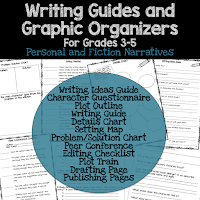
Starting and running a writer’s workshop can sometimes feel like you are herding cats. Students are working on 30 different things, you are bombarded with questions, and no one seems to know what they are expected to do. Here are a few tips to help you organize and run a smooth and successful Writer’s Workshop.
1. Give Students Time to Write
The most important part of a Writer’s Workshop is time to write. It is important that you manage your time so that students get at least 3 days of extended (30-45 minutes) of uninterrupted writing time. This may mean you double up mini-lessons or do a longer author’s chair on another day. It is impossible for students (or writers) to really get into their writing and produce quality work in 15 minutes. Yes, I know you have schedules, standards, assemblies, but trust me. If you make time for them to write, they will.
This time should also have clear expectations:
1. We reread what we wrote previously before start writing.
2. Sometimes it is ok to have time to think and imagine.
3. We write numerous drafts are a must.
4. When it is time to write, we write.
5. Everyone contributes to the writing of others but listening, encouraging, and offering feedback.
6. We take constructive feedback and use it wisely.

2. Create Clear Conferencing Guidelines:
While those students are having their extended writing times, this is where you get to have your one-on-one instruction. When I conference with a student, I always have them read their writing aloud to me. This gives them the opportunity to proofread their work while meeting with me. I take notes as they read and listen. Sometimes I will have them read it more than once. I then start by asking what they like about their writing. Then, I ask what they think needs more editing and revising. Typically their responses are the notes I took. This is the time that I get to work on those mini-lesson standards and allow the students to practice what they are learning. You can access these conference forms here. You can also get entire Writer’s Workshop Units here.

3. Make Author Share Time Meaningful
Students need feedback and encouragement. Peer conferences, whole class shares and small critique groups will help develop writers and give them the courage to share their work, learn to take feedback, and build a community of support. Too often we learn to be independent and don’t have the skills to ask our peers for help. Read this post to learn more about Author Share.
4. Setting up editing, revising, and peer conferences.
Allowing student time to learn, collaborate, and teach others is a meaningful way to assess student understanding. Students also need time to assess their own learning. Having clear expectations for these steps are essential to a successful writer’s workshop. You can access these editing and revising forms here. You can also get entire Writer’s Workshop Units here.









Leave a Reply